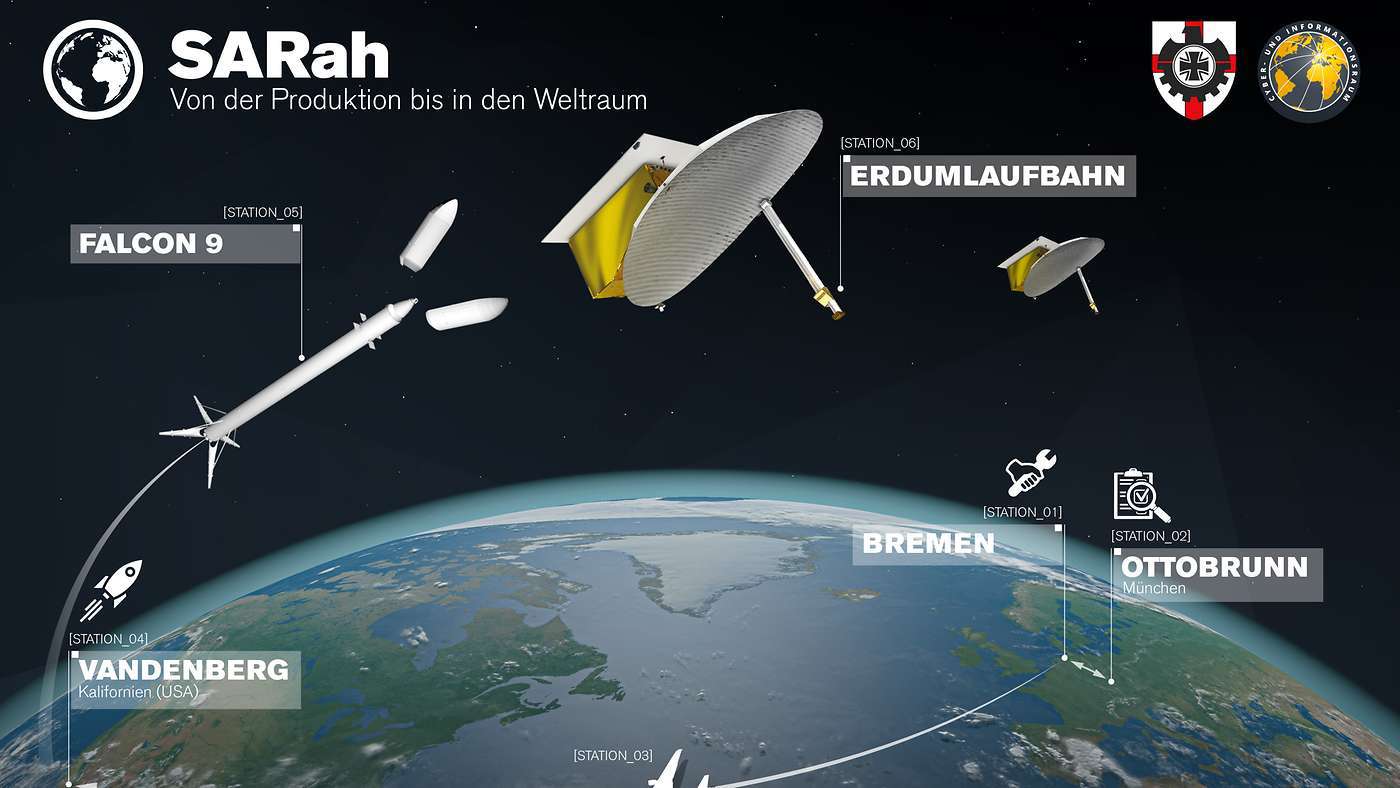In a mission that initially appeared successful, two German military spy satellites launched into orbit last December have failed to become operational. The satellites, part of a new generation of reconnaissance technology, were placed in low-Earth orbit by a Falcon 9 rocket launched from California the day before Christmas last year.
German satellite manufacturer OHB initially announced that the two satellites, part of the SARAH constellation, had “succeeded in orbit.” These satellites were intended to complement a three-satellite reconnaissance constellation featuring synthetic aperture radar (SAR) capabilities. However, six months post-launch, the satellites remain non-operational due to a critical issue with their antennas.
According to a report by German publication Der Spiegel, the antennas on the two OHB-built satellites could not be deployed. Engineers have attempted numerous fixes, including resetting the flight software and maneuvering the satellites to shake the antennas loose, but none have succeeded. Consequently, German lawmakers were informed last week that the satellites might not be functioning as intended.
SARAH Constellation and Its Importance
The SARAH constellation, valued at $800 million, was commissioned in 2013 to provide the German armed forces with advanced reconnaissance capabilities. The first of the three satellites, SARah 1, was successfully launched in June 2022 aboard a Falcon 9 rocket and has been operating without issues. Built by Airbus in southern Germany, SARah 1 carries an active-phased-array radar antenna.
The two problematic satellites, built by OHB, were designed to complement SARah 1 with passive synthetic aperture radar reflectors. The Bundeswehr, Germany’s armed forces, had emphasized the importance of these new satellites for global reconnaissance, crisis management, and early detection, operating independently of weather or time constraints.
OHB’s Responsibility and Future Steps
According to the Bundeswehr, the two satellites built by OHB have not yet been officially handed over to the military, as they remain non-operational. As a result, OHB is responsible for building two replacement satellites. Der Spiegel’s report suggests that OHB may not have fully tested the functionality and deployment of the satellite antennas on the ground, although this has not been confirmed.
This technical setback comes at a challenging time for OHB, which is in the process of becoming a private company. KKR, a private equity firm, has expressed interest in acquiring the German space company. OHB officials initiated the privatization effort late last year, citing structural challenges in the public market.
OHB is a significant player in the European space sector, having founded Rocket Factory Augsburg in 2018, which is working towards its inaugural launch. The company also supplies components for the Ariane 6 rocket and is part of a coalition bidding to build a satellite constellation for the European Union, known as IRIS2, similar to SpaceX’s Starlink.
The failure of these two spy satellites highlights the complexities and challenges inherent in space technology development and deployment. The German military and OHB now face the task of resolving these issues to ensure that their advanced reconnaissance capabilities can be fully realized.

